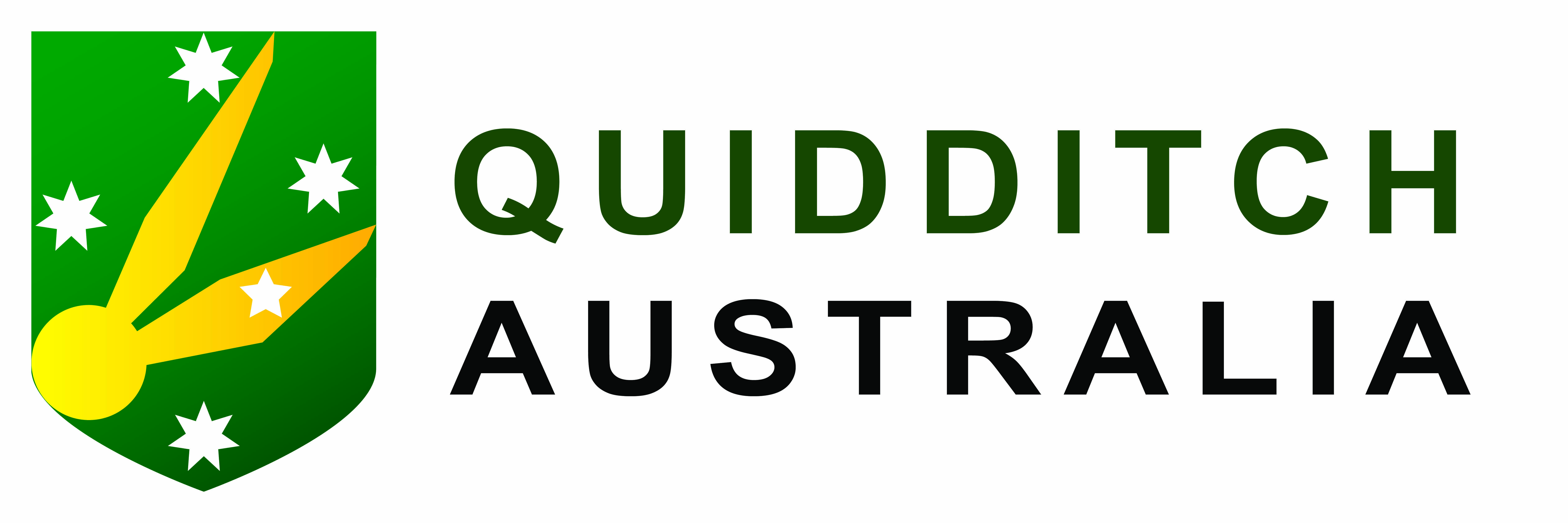Who are the Dropbears?
The Dropbears is the name given to the Australian national quidditch team. This team represents the best Australian quidditch has to offer and is comprised of 21 athletes from across the country. Team Australia represents Australia at all international level quidditch events, such as the IQA World Cup.
The Dropbears made their debut at the 2012 Summer Games, where they came third of five teams. Two years later, at the 2014 Global Games, they came second of seven teams. Last year, the Dropbears claimed gold at the 2016 IQA World Cup, defeating defending champions, the USA.
In 2016, twenty-one Australian quidditch players were selected from the best and brightest to represent down under and chase down that elusive gold. They were an elite squad of athletes from Victoria, New South Wales, The Australian Capital Territory, and Western Australia, lead by a fearsome captain/coach duo. Nine of the twenty one players were returning for another turn seeking to better their silver medals from last time, and all were are out for blood.
In 2018, a new squad of twenty-nine individuals, including twenty-one players and eight reserves, were chosen. Representing Victoria, New South Wales, and Queensland with reserves from South Australia and Western Australia as well, the team surely encapsulates the peak of Australian quidditch. Led once again by a brilliant coaching team, we have high hops for the success of these guys on an international stage. Thirteen players represented Australia in 2016, hoping to uphold their winning streak, and eight players will be making their international debut in Italy.
What is the Quidditch World Cup?
The IQA World Cup is the flagship event of the International Quidditch Association and is held on a two-year recurring basis. It represents the highest level of quidditch competition in the world and is where the best quidditch players from around the globe head for ultimate glory.
The first IQA World Cup was held in 2012 in Oxford, England, then called the “Summer Games”. It saw five teams compete with the USA eventually winning gold and France winning silver. It was a tie-in event with the 2012 Summer Olympic Games, forming part of the official torch relay event. Held again in 2014, called the “Global Games”, the second IQA world cup was held in Burnaby, Canada. Seven teams competed with the USA winning gold again and Australia taking silver. In 2016, Frankfurt, Germany hosted 21 countries in what was now officially called the “IQA World Cup”. Australia eventually claimed the gold medal, defeating two-time victors, the USA, and avenging their loss two years prior.
The 2016 World Cup was the largest event in its iteration, with 21 countries, hundreds of players, and hundreds of officials, volunteers, and spectators. It took place in Frankfurt, Germany on the 23rd and 24th of July. Australia played an exhibition match against hosts, Germany, before facing Belgium, Slovakia, and Ireland in pool play. Topping their pool, Australia was ranked fifth going into bracket play. Australia then defeated Germany and France in the first two finals, advancing undefeated to the semi-final against Canada. In an incredibly close game, Australia defeated Canada 80* – 40 to earn a place in the grand final against the internationally undefeated USA. Australia eventually emerged victorious after a long and excruciating close game, defeating the USA 150* – 130, the first team to ever do so.
The 2018 IQA World Cup will be held in Florence, Italy, between the 27th of June and 2nd of July. The IQA is expecting nearly 30 teams to attend as well as more spectators, officials, crew, and fans than ever before. The tournament itself will be held on the 30th of June and 1st of July, with exposition games and other welcoming events taking place earlier in the week.
How can I watch the games?
The best place to follow the future development of the team is through the Quidditch Australia Facebook page. Click here to re-watch all the action from Australia’s gold medal winning game.
